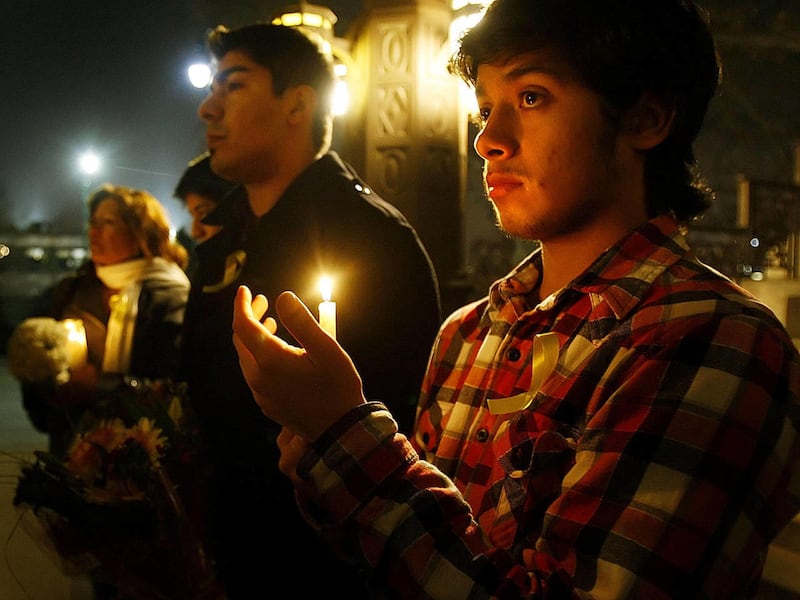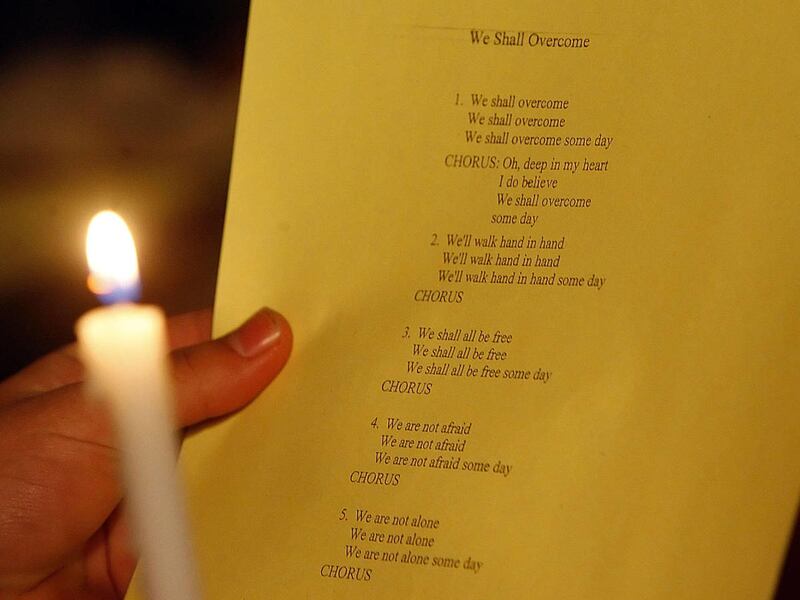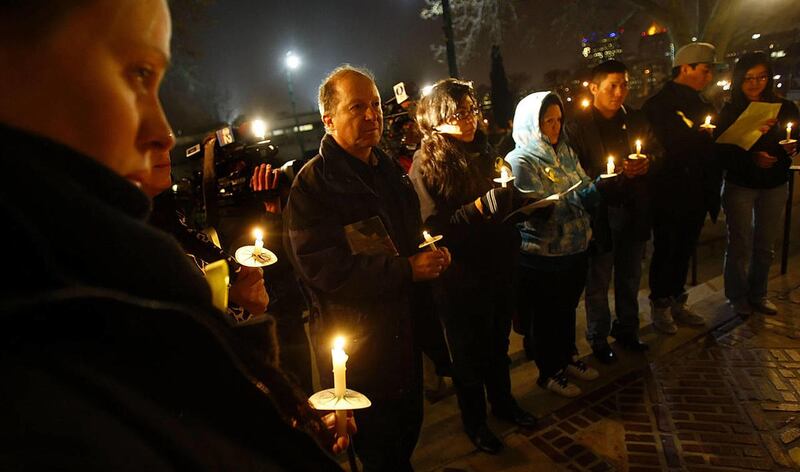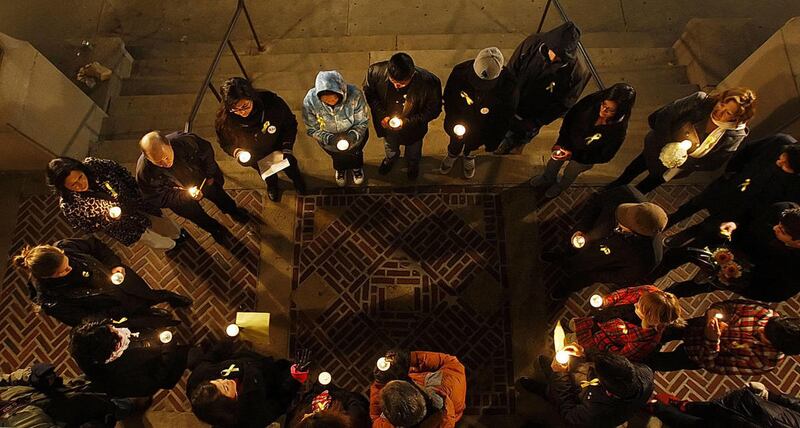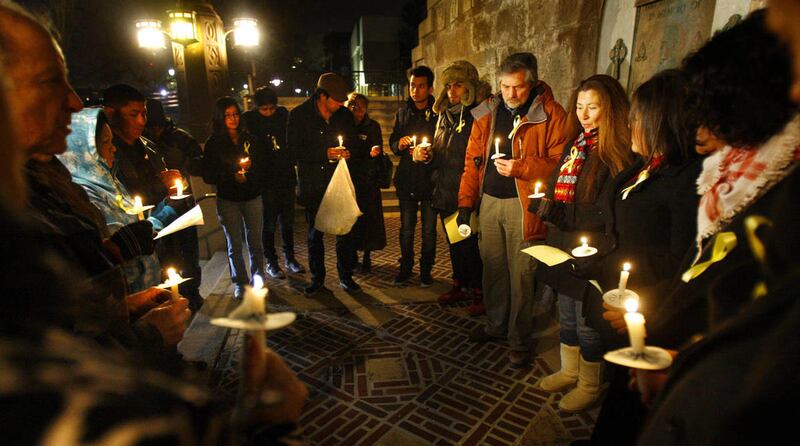SALT LAKE CITY — Candlelight vigils at the Cathedral of the Madeleine and at the St. Jerome Newman Center in Logan Monday night marked the fifth anniversary of a massive immigration raid at Swift & Co. meatpacking plants.
"Nothing has happened at the federal level on immigration reform," said organizer Jenn Sanchez, who was a reporter covering the raid in 2006. "It had such an impact on my life that I left journalism," she said, and pursued interests where she could be more of an advocate for the people who were affected, mostly Hispanics.
The raid had significant impacts on families, the community and business.
"I keep getting asked if my immediate family was affected by this," said a participant in the vigil who identified himself only as Brian. "No, but my immediate community was affected by this."
Nationally, some 1,300 people were arrested at six Swift & Co. facilities, including its Cache County plant in Hyrum. In Utah, 147 people were charged. Most of them were deported.
The raids split up families and spread fear among other undocumented workers and employers whose attempts to verify the documents provided to them by employees proved to be futile. While many of the undocumented workers returned to the United States, some families remain divided, advocates say.
Swift and Co. officials, according to a 2007 Associated Press report, estimated that the raids would potentially cost the meatpacking company $30 million in lost efficiencies while new workers were trained plus $10 million to retain and attract workers, which included $1,500 signing bonuses for new hires.
Roger Tsai, a Salt Lake attorney who specializes in immigration law and its impacts on businesses, likens the raids to the federal government engaging in a game of "'Whack-a-Mole' to rid undocumented workers from the landscape."
At the time, Swift officials said the company was the world's largest processor of fresh pork and beef products. A year later, the embattled company was sold to JSB-S.A., a Brazilian enterprise. The plant in Hyrum operates as JSB USA, a subsidiary of the Brazilian firm.
"I think it was a huge individual sacrifice that one employer had to pay for the federal government to catch the attention of many," Tsai said.
But for as many resources as the federal government has at its disposal, its efforts to address illegal immigration through administrative or prosecutorial means are limited.
There are tens of thousands of Utah employers, Tsai said, but ICE raids have occurred at but a handful of businesses. Perhaps 20 to 30 Utah firms are audited by the Department of Homeland Security each year.
"Once again, that's with all the resources Immigration and Customs Enforcement and the Department of Homeland Security can bring to bear. The question becomes: Do we really want to supplement that with state resources?"
Mark Alvarez, a Salt Lake immigration attorney, said the raid and the handful of others like it "scared people, disrupted the business community and split up families."
"But they were not successful in addressing the challenges the United States faces," regarding illegal immigration, Alvarez said.
Some supporters of the raids espoused the view that if the events spread fear, undocumented workers would leave the country on their own.
"That hasn't happened," Alvarez said, noting the majority of undocumented workers have lived in the United States for more than a decade. "It seems to be fighting logic," he said.
E-mail: marjorie@desnews.com, sfidel@desnews.com Twitter: SteveFidel

